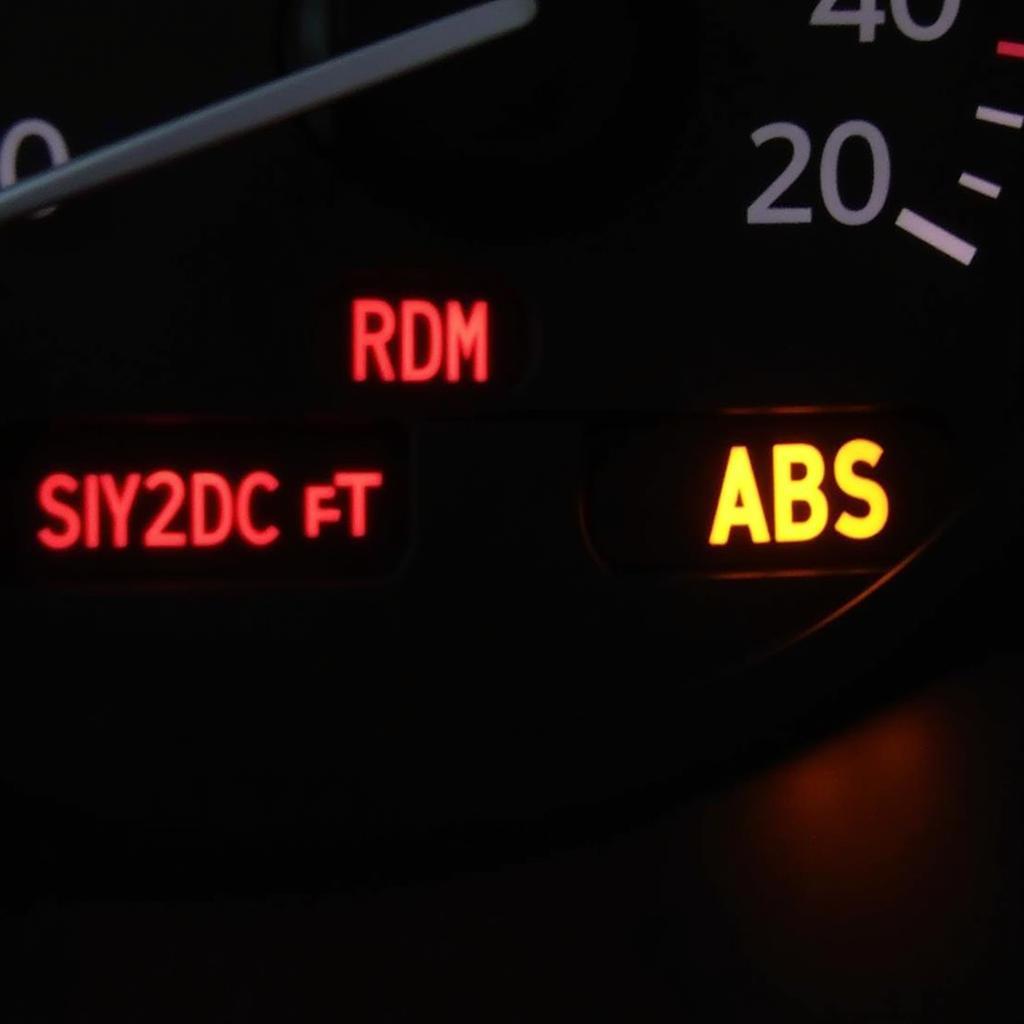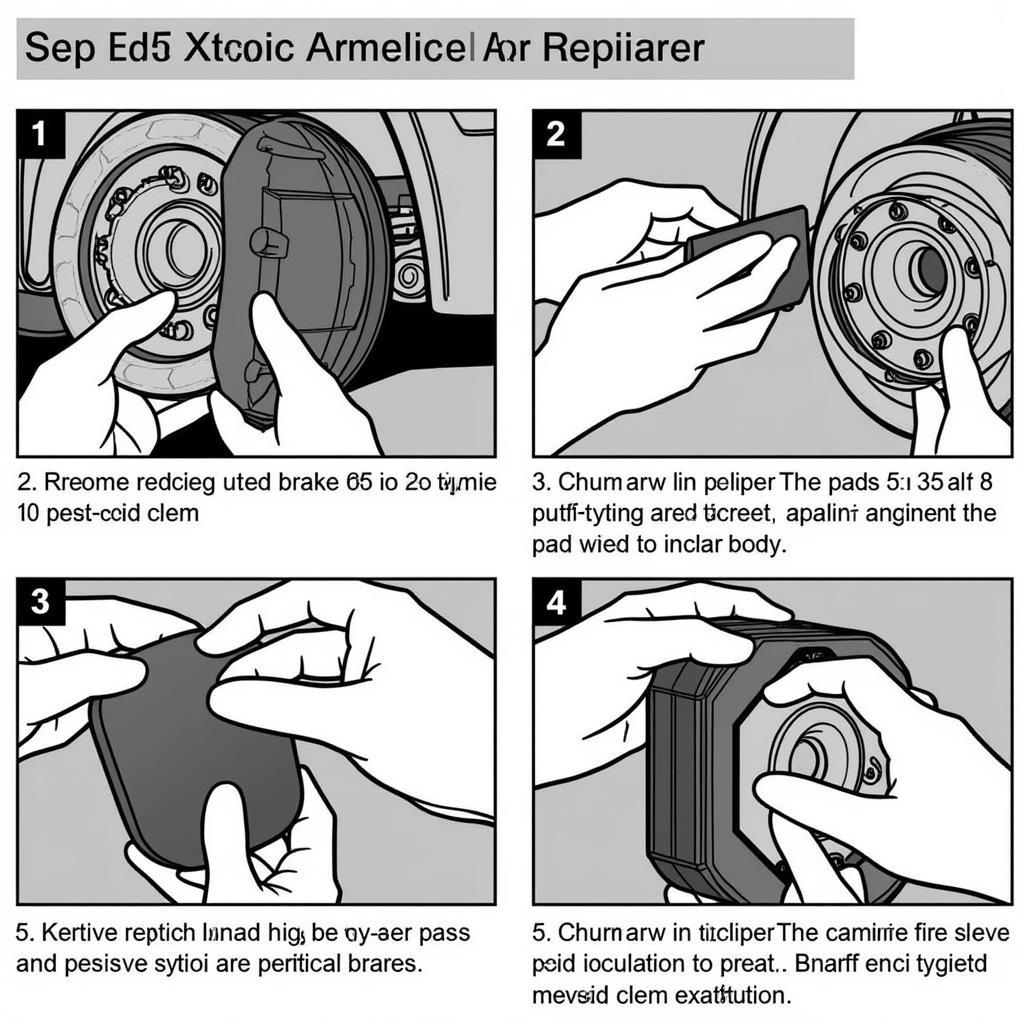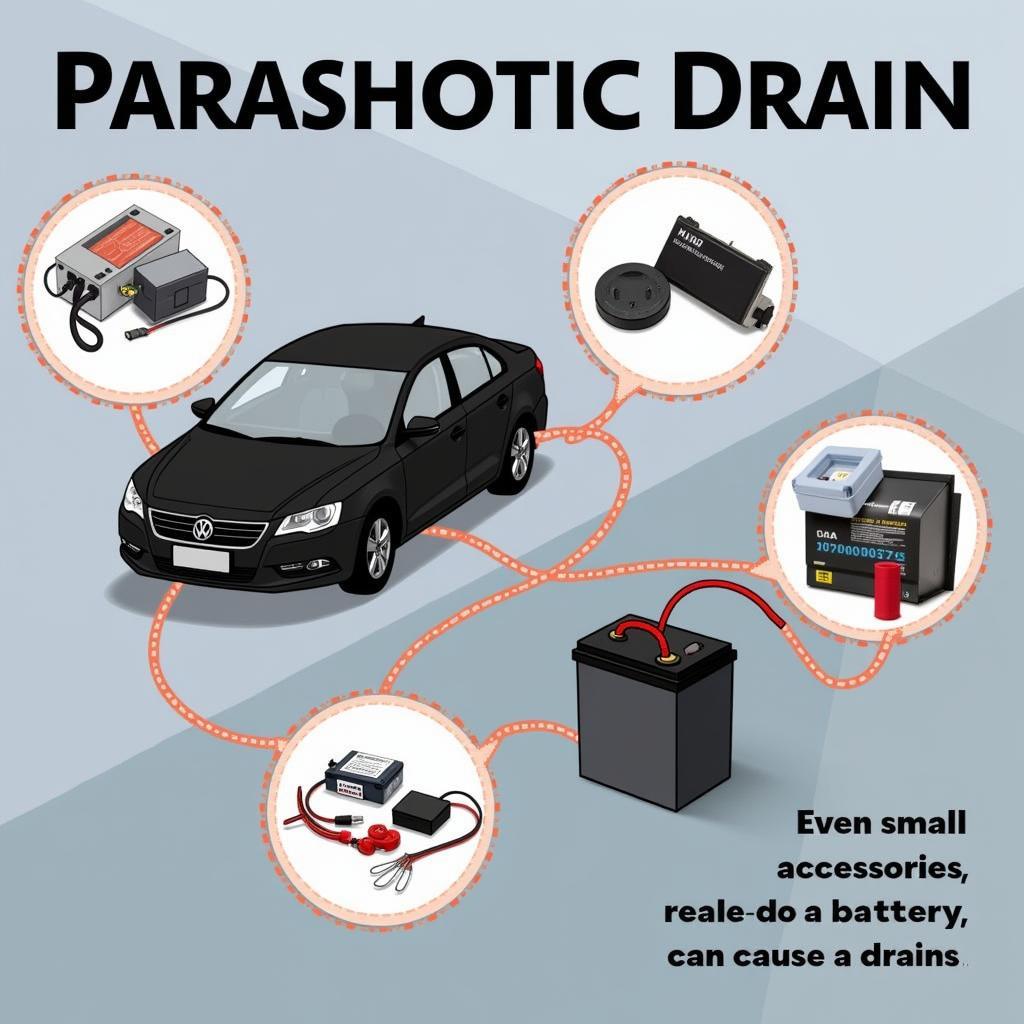The BMW E46 is a popular car, but like any vehicle, it can experience issues. One common problem is the dreaded yellow brake warning light illuminating on your dashboard. While it can be a nerve-wracking experience, understanding the potential causes and solutions can help you address the issue promptly and safely.
This comprehensive guide will delve into the various reasons behind a BMW E46 yellow brake warning light and provide practical steps for diagnosis and repair.
Understanding Your BMW E46 Brake System Warning Lights
Before we jump into the specifics of the yellow brake warning light, it’s essential to understand the difference between the various brake system warnings on your E46’s dashboard:
-
Red Brake Warning Light: This light indicates a critical issue with your braking system, such as complete brake fluid loss or a serious malfunction in the hydraulic system. If this light illuminates, stop driving immediately and have your vehicle towed to a mechanic.
-
Yellow Brake Warning Light: This light typically signals a less severe problem, often related to your Anti-lock Braking System (ABS) or Electronic Brakeforce Distribution (EBD). While you can usually continue driving cautiously, it’s crucial to address the issue promptly to ensure your safety on the road.
 BMW E46 Brake Warning Lights
BMW E46 Brake Warning Lights
Common Causes of a Yellow Brake Warning Light on a BMW E46
Several factors can trigger the yellow brake warning light in your E46. Here are some of the most common culprits:
-
Worn Brake Pads: Most E46 models come equipped with brake pad wear sensors. When your brake pads wear down to a certain point, these sensors trigger the yellow warning light, indicating it’s time for a replacement.
-
Faulty ABS Wheel Speed Sensor: Your ABS relies on wheel speed sensors to function correctly. A malfunctioning or dirty sensor can disrupt the system and trigger the warning light.
-
Low Brake Fluid Level: While a more serious issue usually triggers the red brake warning light, a slightly low brake fluid level can sometimes activate the yellow warning light. This could indicate a minor leak or simply that your brake fluid needs topping up.
-
Issue with the ABS Module: The ABS module is the brain of your anti-lock braking system. Over time, it can experience electrical or mechanical failures, leading to the yellow warning light.
-
Problem with the DSC System: Some E46 models are equipped with Dynamic Stability Control (DSC), which works in conjunction with the ABS. A fault within the DSC system can also trigger the yellow brake warning light.
Diagnosing the Yellow Brake Warning Light
Accurately diagnosing the root cause of the yellow brake warning light is essential for effective repair. Here’s a step-by-step approach:
-
Check Your Brake Fluid: Begin by inspecting your brake fluid level. If it’s low, top it up to the recommended level and monitor for any further drop, which could indicate a leak.
-
Inspect Brake Pads: Next, check your brake pads for wear. If they appear thin or you notice any uneven wear patterns, it’s time for a replacement.
-
Scan for Fault Codes: If the brake fluid and pads seem fine, the next step is to scan your car’s computer for fault codes using a specialized BMW diagnostic tool. These codes can pinpoint the specific area causing the issue.
[quote|John Smith|Lead BMW Technician at Munich Motors|”Many times, the yellow brake warning light is simply due to worn brake pads. However, it’s essential not to ignore this warning as it could indicate a more serious underlying issue with your braking system.”]
Fixing the Yellow Brake Warning Light
Once you’ve diagnosed the problem, you can proceed with the appropriate repair:
-
Brake Pad Replacement: Replacing worn brake pads is a relatively straightforward procedure. You can find numerous online resources and tutorials specific to your E46 model.
-
ABS Sensor Cleaning or Replacement: If a dirty or faulty ABS sensor is the culprit, cleaning it with an electrical contact cleaner might resolve the issue. However, if the sensor is damaged, it will require replacement.
-
Brake Fluid Leak Repair: A brake fluid leak should be addressed by a qualified mechanic immediately. They can identify and repair the source of the leak, ensuring your braking system’s safety and reliability.
-
ABS Module Repair or Replacement: Repairing or replacing the ABS module can be a complex and costly procedure. It’s best to consult with a specialist who can diagnose the module and recommend the most cost-effective solution.
-
DSC System Inspection and Repair: Similar to the ABS module, issues with the DSC system require professional attention. A mechanic can diagnose and address any faults within the system.
 BMW E46 Brake Pad Replacement
BMW E46 Brake Pad Replacement
Don’t Ignore the Warning
A yellow brake warning light on your BMW E46 should never be ignored. Addressing the issue promptly can prevent further damage to your braking system and ensure your safety on the road. Remember, regular maintenance and timely repairs are crucial for keeping your E46 running smoothly and safely for years to come.
FAQs about BMW E46 Yellow Brake Warning Light:
Q: Can I drive my BMW E46 with the yellow brake warning light on?
A: While you can usually drive cautiously with the yellow brake warning light on, it’s crucial to have the issue diagnosed and repaired as soon as possible.
Q: How much does it cost to fix a yellow brake warning light on a BMW E46?
A: The cost of repair varies depending on the underlying cause. Simple fixes like brake pad replacement or sensor cleaning can be relatively inexpensive, while more complex issues like ABS module replacement can be costly.
Q: How often should I check my BMW E46’s brake fluid level?
A: It’s a good practice to check your brake fluid level at least once a month and top it up if necessary.
Q: Can I use any brake fluid in my BMW E46?
A: No, it’s crucial to use the brake fluid type specified in your owner’s manual for optimal performance and safety.
Q: What is the difference between the yellow brake warning light and the ABS light?
A: While both lights can illuminate due to ABS issues, the yellow brake warning light can also indicate problems with the traditional braking system, such as low brake fluid or worn brake pads.
This article provides a general overview and should not be considered professional mechanic advice. Always consult with a qualified BMW technician for any concerns about your vehicle’s braking system.


